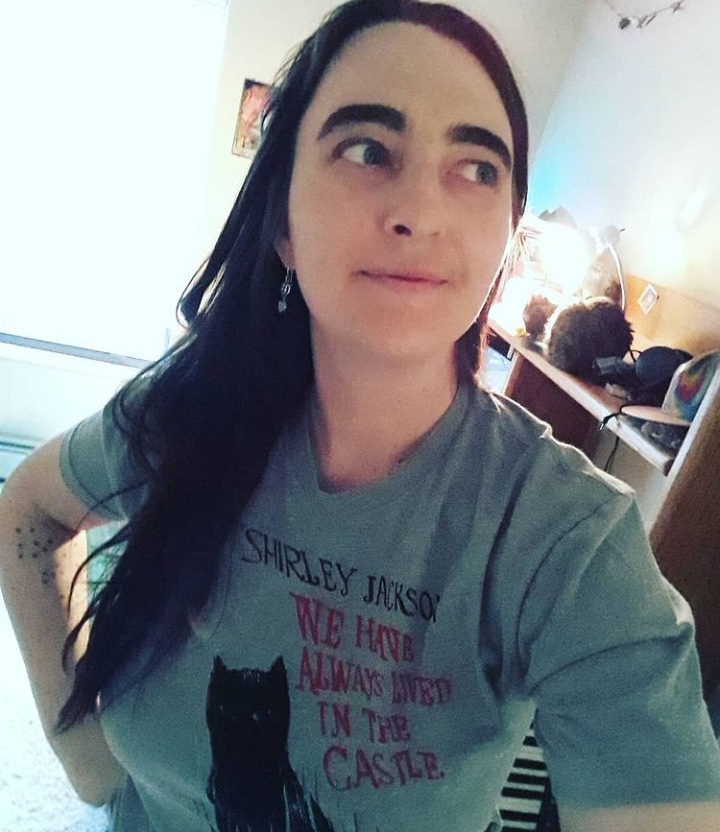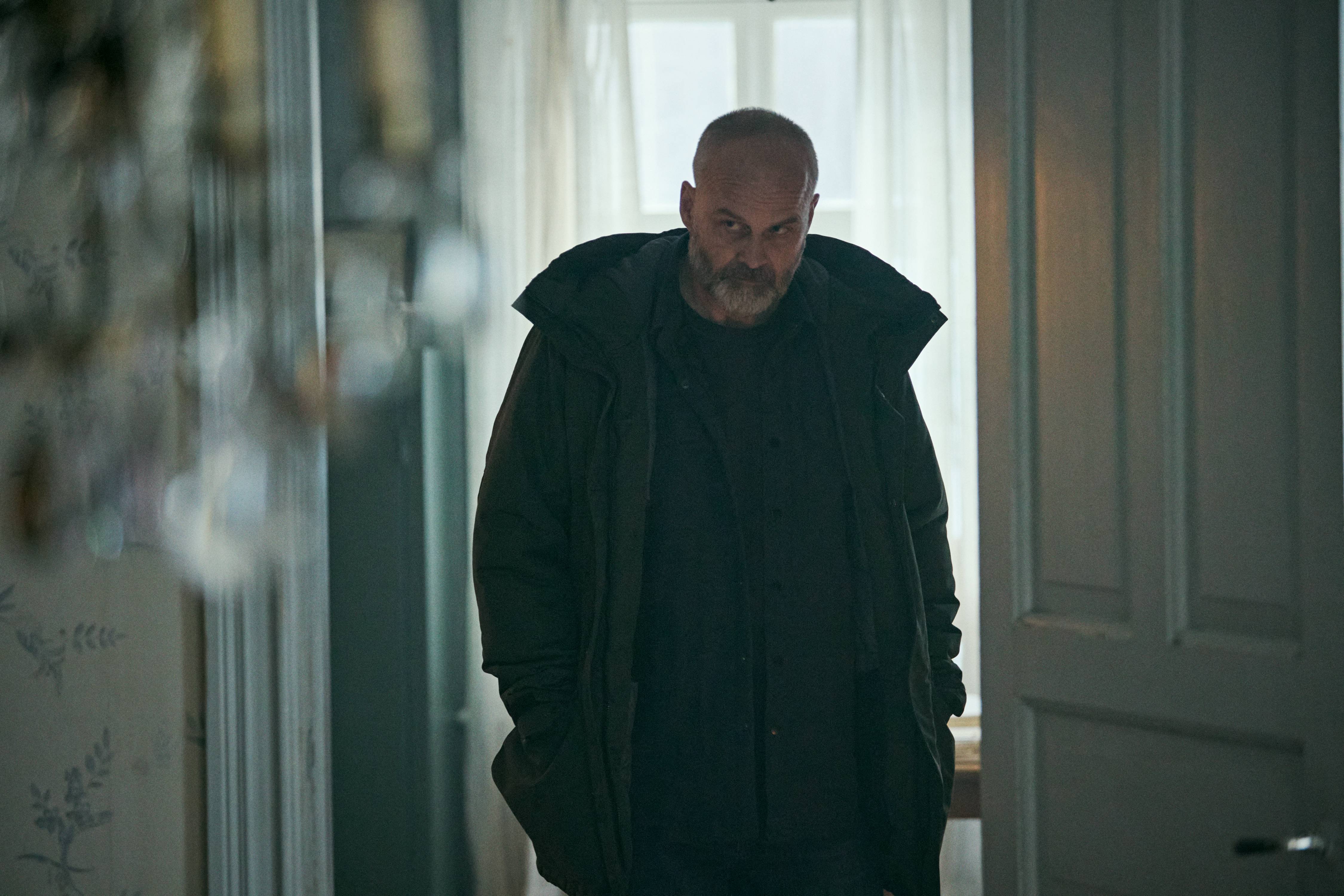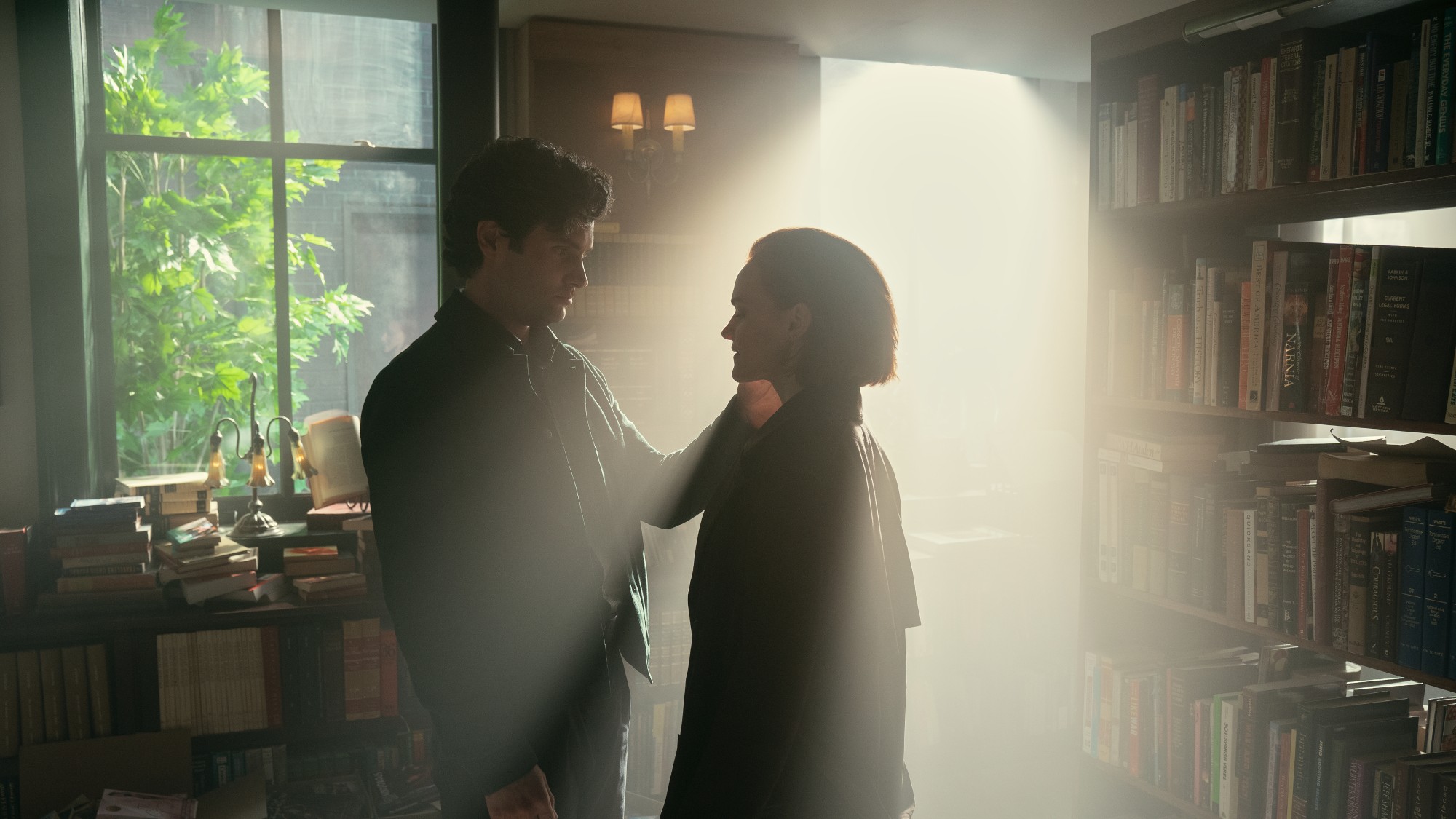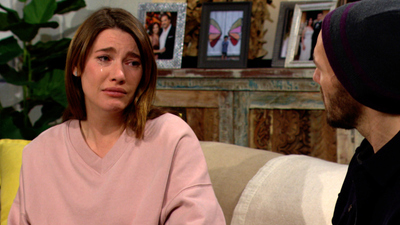'I Know What You Did Last Summer' is a creepy update on a classic whodunnit
Amazon Prime’s 'I Know What You Did Last Summer' features a new cast of characters and a lot of twists along the way.

With Amazon Prime’s I Know What You Did Last Summer, the classic whodunnit switches tracks to keep fans of the novel and the film series on their toes.
Right off the bat, we meet a whole new close-knit group of friends with protagonist Allison and twin sister Lennon (Madison Iseman). This group includes the gregarious Margot (Brianne Tju), the caring Johnny (Sebastian Amoruso), the breezy Riley (Ashley Moore) and the moody Dylan (Ezekiel Goodman). An extended cast features Bill Heck as Allison’s dad, Bruce; Fiona Rene as town sheriff Lyla; Brooke Bloom as the mysterious Clare; Cassie Beck as Riley’s working class mom, Courtney; and recurring appearances by Chrissie Fit as a prime police suspect.
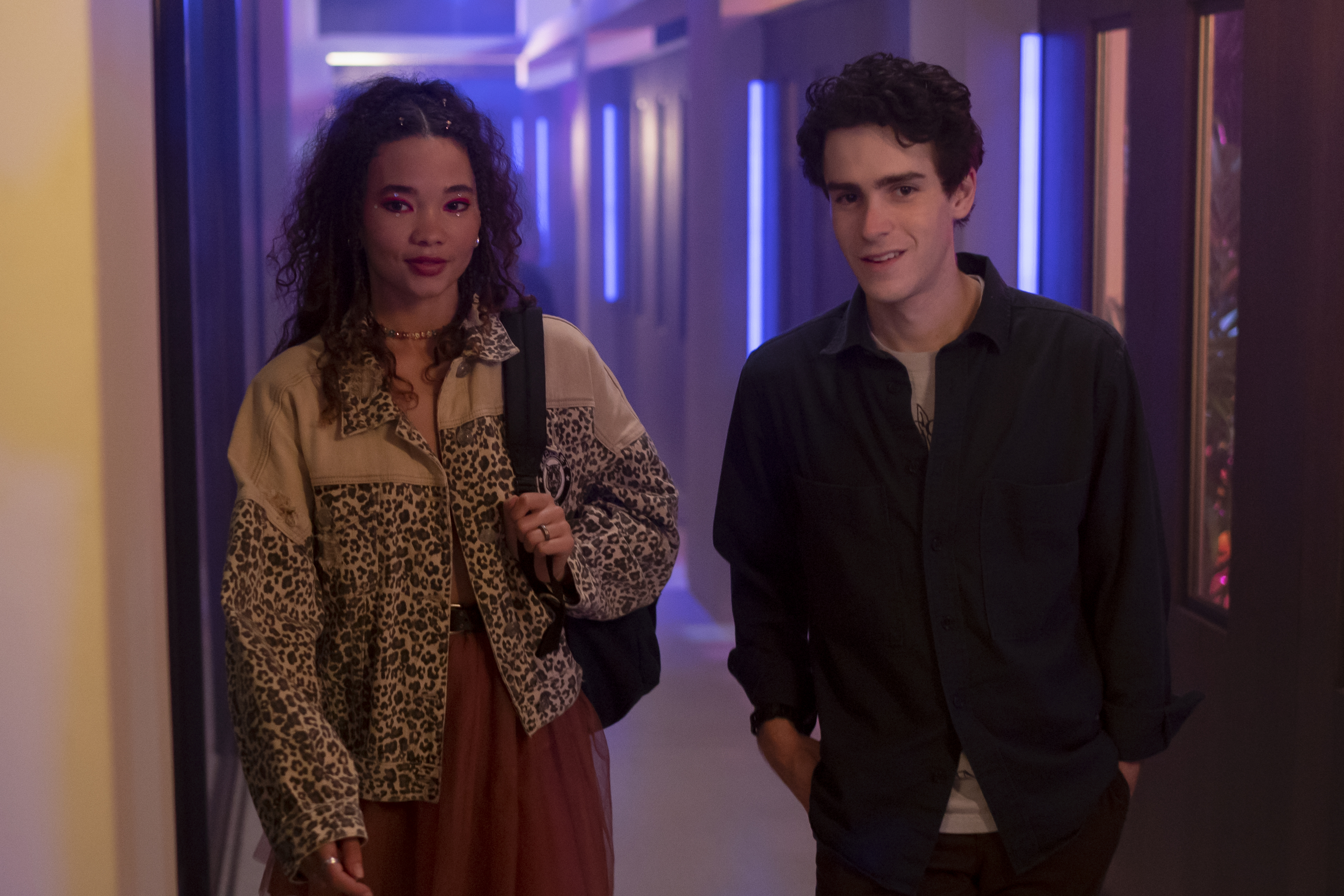
Though Allison and Lennon (affectionately referred to as Lemon) look alike, they have grown apart from one another in response to their mother’s tragic death by suicide some time before. While Allison has grown antisocial and despondent, Lennon has become experience-driven, doing drugs, having ethically-questionable sexual encounters and breaking a lot of hearts along the way.
At a party that takes place on the night of their high school graduation, Lennon intentionally hurts many people in her friend group in ways that unfold over the series, but the most plot-relevant is that she has sex with Allison’s longtime crush, Dylan. After a mean-spirited fight, Allison throws her necklace at Lennon and takes her jacket to escape the party, leading to a case of mistaken identity when Lennon’s friend group jumps into the car with her in order to leave.
As anyone who is familiar with previous adaptations knows, this is where their lives take a turn for the worse. Though Allison appears mostly sober, when Lennon’s inebriated friend group piles into the car demanding that she drive under the assumption that she is Lennon, Allison does just that. Rounding a corner near the beach, she hits the real Lennon with her car. Thinking that she’s Allison, the friend group justifies taking her to a cove to wash away with the tide. Naturally, this isn’t as straightforward as they think it’s going to be as they’re seen by at least one bystander and Lennon’s body disappears entirely. Though Allison tells her father what happened, he urges her to live the lie that she is Lennon in order to avoid jail time. When Allison returns on summer break months later, a gruesome series of murders begins as she realizes that someone knows her real identity.

By the time of the second sequel to the 1997 film version of I Know What You Did Last Summer, many fans might have felt that there was no new place to go with this concept, but this series proves that notion wrong by fleshing out its characters and their motivations. It combines the heavy mystery elements of the novel with the gruesome slasher aesthetics of the ‘90s film franchise, but takes it a step further by pushing themes of identity, not for peripheral characters but for the protagonist herself.
Faced with constant reminders of her own alienation by those who believe that she is Lennon and refer to Allison as a “psycho,” Allison occasionally lets it slip that she doesn’t feel particularly close to this group of friends. Despite forming a bond with the sensitive Johnny, Allison’s lack of affection for pretty much anyone in her life save the moody, judgmental Dylan, is clear; and Dylan, thinking she is Lennon, has never forgiven her for the night of “Allison’s” death. When people start to die, Allison remains isolated and unable to share her secrets.
Get the What to Watch Newsletter
The latest updates, reviews and unmissable series to watch and more!
The cast works well together, each of them teetering between self-involved and charismatic in a way that feels realistic for teenagers just completing high school. The lack of self-awareness tends to be indicated through adult cast members as well. Margo’s mother is social media obsessed, beautiful and unapologetically interested in social status, which helps put Margo’s abrasive presence into context. Meanwhile, Allison and Lennon’s dad evades accountability for their mother’s death and shows a level of savvy ruthlessness that drops hints around Lennon’s inability to engage with her own sadness in a responsible way. Chrissie Fit plays a mother who is blamed for the murders, providing commentary on her status as a single woman who has been villainized after her ex-husband began an affair with the teenaged Johnny.
Beyond just setting the scene, there is a notable amount of space given to characterization over the first several episodes, highlighting the supporting cast with gradual reveals of their own histories and their specific memories of the night Lennon died. The on-the-surface, uncomplicated drug dealer Riley is given a much more emotionally aware inner life than one would assume; and the unfolding of Margo’s mostly unrequited love for Lennon provides her with hidden depth. Like Allison, Johnny struggles to feel sincerely attached to his friend group, which gives them a specific affection for one another, though each remains lost in their own complicated thoughts.
In addition to the mystery and slasher themes at play in previous entries, one of the strongest connecting themes of both the novel and the film series is the oppressive compulsory heterosexuality of its leads. In the 1997 film in particular, Barry (Ryan Phillippe) and Helen (Sarah Michelle Gellar) are shown as somewhat toxic counterparts to the healthier, more emotionally in-tune Julie (Jennifer Love Hewitt) and Ray (Freddie Prinze Jr.). While Julie and Ray struggle with the moral predicament of leaving someone to die, Helen has spent much of her year caught in a life full of gender norms that prohibit her growth. Meanwhile, Barry is a classic meathead who refuses to take life seriously until it’s too late, and they both suffer for it. This is reflective of the dynamics in the novel to some extent, though they are more pronounced in the film.

The new series shines for its willingness to break out of these traditional roles, shifting the central conflict to one between sisters stuck in a complicated emotional riptide with one another, even months after one of them perishes. Allison, always playing a role of some sort, struggles to assert herself in a town that makes it very clear that it very much preferred her sister Lennon to her. Though the underlying tension of a longstanding crush on Dylan remains, it serves as little more than a catalyst through the first episodes. Though oppressive relationships that seem impossible to escape are still a major theme, it expands to include non-heterosexual and non-romantic partnerings. Queer relationships are prevalent, but they remain just as conflicted as the rest.
The new series doesn’t require revisiting the previous entries in the franchise to enjoy, but one will notice a few welcome improvements along the way if they take the time to do so. Though the twists are creative and the scares are truly visceral, this take ups the ante in some important ways. As the mystery builds episode after episode and we rocket towards the inevitable conclusion, the story succeeds in making us care about these seemingly shallow and self-serving characters along the way, regardless of the terrible things that they have done.
I Know What You Did Last Summer premieres on Amazon Prime Video on Oct. 15, releasing the first four episodes. Episodes will then be released weekly.
Sara Century started writing through personal and music zines and pretty much just ran with it. She loves a lot of things, including but not limited to pets, comics, museums, libraries, and horror novels. She's the co-host of the podcast Bitches On Comics and the co-founder of the Decoded Pride queer speculative fiction anthology.
Find her on queerspec.com, bitchesoncomics.com, and decodedpride.com.
